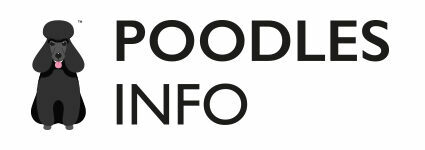Cockapoo Separation Anxiety: Tips & Solutions
Separation anxiety is an emotional and behavioral issue that affects many dog breeds, including the popular and beloved Cockapoo. As a Cockapoo enthusiast, it is essential to understand the causes, symptoms, and potential treatments for this anxiety disorder to maintain a strong and healthy bond with your furry friend. In this comprehensive guide, we will explore various aspects of Cockapoo separation anxiety, including prevention strategies, training techniques, and the use of toys and enrichment activities to help your dog overcome these challenges and lead a happy, balanced life.
Understanding Separation Anxiety in Cockapoos
Separation anxiety in dogs is a common behavioral issue that occurs when a dog becomes overly attached to their owner and experiences distress when left alone. This condition can manifest in various ways, ranging from mild restlessness to destructive behaviors, and is particularly prevalent in certain breeds such as Cockapoos. Cockapoos, a crossbreed between Cocker Spaniel and Poodle, are known for their affectionate and friendly nature, which can inadvertently contribute to the development of separation anxiety.One of the primary causes of separation anxiety in Cockapoos is their strong emotional bond with their owners. This breed thrives in family environments, as they are exceptionally social and playful. However, the strong attachment can lead to an overdependence on their owner’s presence, causing the dog to become anxious and distressed when left alone. Additional factors that may contribute to separation anxiety in Cockapoos include a lack of socialization, sudden changes in routines, and insufficient mental and physical stimulation.Symptoms of separation anxiety in Cockapoos may vary, but some common signs include incessant barking or whining, destructive behaviors such as chewing on furniture or digging, and inappropriate elimination when left alone. Some dogs may also exhibit signs of depression, pacing, and excessive drooling or panting in response to their owner’s absence. It is essential to consult with a veterinarian or professional dog trainer if you suspect that your Cockapoo is experiencing separation anxiety, as these symptoms can also overlap with other medical and behavioral conditions.Cockapoos may be more susceptible to separation anxiety due to their high intelligence and sociable temperament. Both Cocker Spaniels and Poodles are known for their cleverness and ability to form strong bonds with their owners. This combination of traits can result in Cockapoos being more prone to developing emotional dependence and experiencing anxiety when left alone. Furthermore, as smaller dogs, Cockapoos may be more sensitive to environmental changes and disruptions, making them more vulnerable to the development of separation anxiety.To manage and prevent separation anxiety in Cockapoos, it is crucial to provide them with a consistent routine, proper socialization, and ample mental and physical stimulation. Training your Cockapoo to become comfortable with being alone can significantly reduce the likelihood of separation anxiety developing or worsening. This may include gradually increasing the time spent apart, creating a safe and comfortable environment for them while you are away, and using interactive toys to alleviate boredom and promote independence. Consulting with a veterinary behaviorist or professional dog trainer can also provide valuable guidance and resources for managing separation anxiety in your Cockapoo.
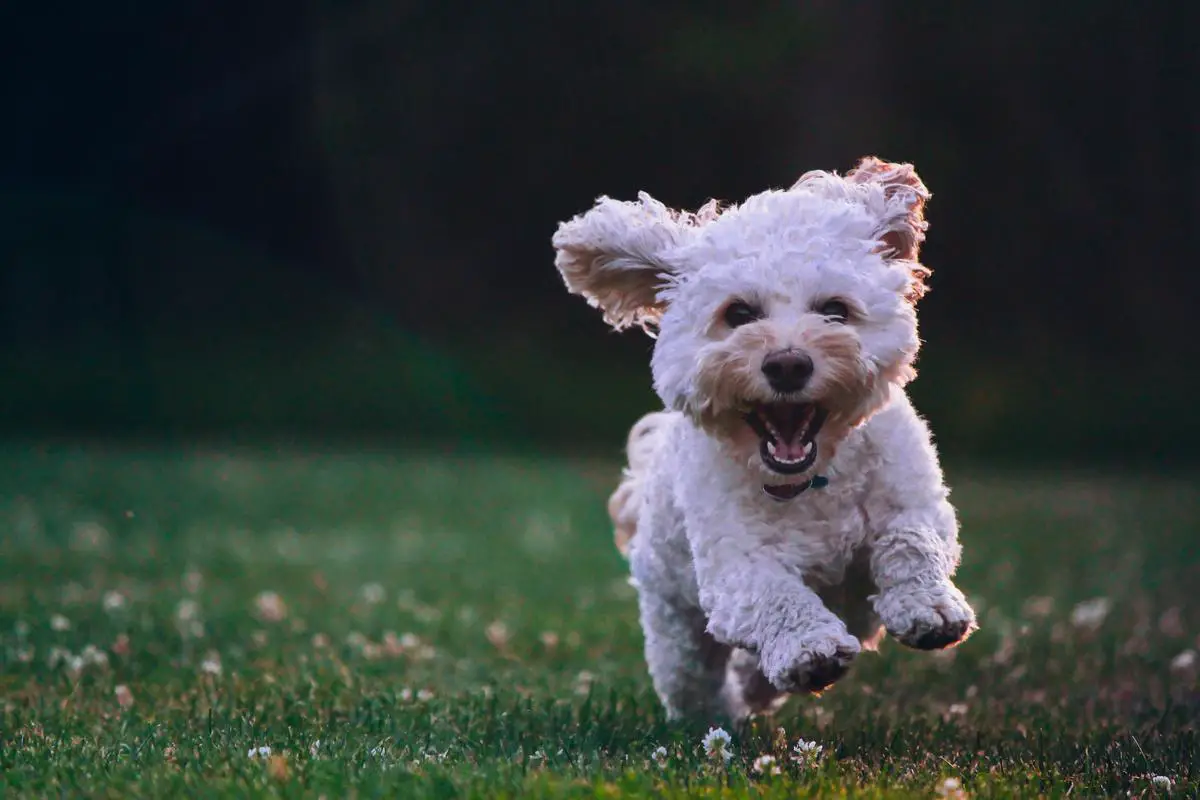
Preventing Separation Anxiety in Cockapoos
Building on the foundation of a consistent routine, establishing regular daily activities can help prevent separation anxiety in Cockapoos and create a sense of stability for your pet. This routine might involve morning and evening feeding times, grooming, regular walks, and playtime. Keeping these activities consistent will allow your dog to feel secure and know what to expect when you leave and return home. Implementing these strategies in combination with guidance from a veterinary behaviorist or professional dog trainer will further enhance your ability to manage and prevent separation anxiety in your Cockapoo.Another technique to prevent separation anxiety in young Cockapoos is to gradually increase the time they spend on their own. Start by leaving your dog alone for short periods and gradually extend the duration. This will help your pet become more comfortable with being alone and will reduce the anxiety they may feel when you’re not around. Remember to keep your departures and returns calm and low-key. By avoiding excessive fuss or excitement, you can minimize the stress your dog may experience during these moments.It’s also crucial to create a safe and comfortable environment for your Cockapoo when you’re not at home. Providing a dedicated space or crate with their favorite toys, treats, and bedding can help soothe their separation anxiety. The use of calming aids, such as pheromone diffusers and calming treats, can also make a significant difference in reducing stress levels for your pet.In addition to creating a comfortable environment, be sure to provide plenty of mental and physical stimulation for your Cockapoo. Regular exercise, engaging toys, and scheduled playtime can help alleviate pent-up energy and promote relaxation. Boredom can contribute to separation anxiety, so it’s essential to keep your dog entertained and actively engaged.Lastly, it’s important to remember that positive reinforcement plays a crucial role in preventing separation anxiety from becoming a more severe issue. Praise and reward your Cockapoo when they demonstrate independent, calm behavior, and consistently reinforce their positive actions. This will help build a strong foundation of trust between you and your pet, ultimately helping to prevent separation anxiety in the long run.

Recognizing Signs of Separation Anxiety
Understanding separation anxiety in Cockapoos is essential for pet owners, as it is a common issue that occurs when a dog becomes distressed and exhibits undesirable behaviors in the absence of their owner or primary caretaker. To address separation anxiety early on and prevent potential problems, it is crucial to recognize the signs in your Cockapoo, as well as differentiate them from other similar conditions. In the following, we will discuss several physical and behavioral indicators of separation anxiety in Cockapoos and how to distinguish those from other issues.
One of the primary signs of separation anxiety in Cockapoos is destructive behavior during your absence, such as ripping apart pillows, tearing at furniture, or scratching at doors and windows. Their destructive behavior is a manifestation of their distress and not simply misbehavior. Similarly, excessive barking or howling during your absence is another behavioral indicator of separation anxiety. These vocalizations are often accompanied by pacing or repetitive movements as the dog tries to cope with their anxiety.
In addition to destructive and loud behaviors, other signs of separation anxiety in Cockapoos include house soiling or having accidents when left alone. This behavior can be attributed to the distress they experience during your absence, causing them to lose control over their bladder or bowels. If your Cockapoo is otherwise well-trained and has no medical issues, house soiling during your absences may be a sign of separation anxiety. Keep track of when these accidents happen to identify if it is related to your absence.
Besides the previously mentioned symptoms, separation anxiety in Cockapoos can also lead to changes in appetite and even self-harm. Your dog may refuse to eat when left alone, losing weight and potentially leading to other health issues. In extreme cases, Cockapoos can engage in self-harm, such as excessive licking, biting, or scratching that may result in injuries or skin irritation. These behaviors are a result of the immense stress and anxiety they feel when separated from their owner.
Efficiently addressing separation anxiety in Cockapoos requires distinguishing this condition from others with similar symptoms, such as destructive behavior or house soiling due to insufficient training, lack of supervision, or underlying medical issues. Consulting your veterinarian can help rule out any medical factors contributing to these behaviors. Additionally, implementing a structured training program ensures your Cockapoo’s needs are met, ultimately leading to a more relaxed and happy pet. Identifying the root cause of your dog’s symptoms allows for better management and alleviation of their anxiety-related behaviors.

Training Techniques for Reducing Anxiety
Crate training is a highly effective method in tackling separation anxiety in Cockapoos. Providing a secure and comfortable space for your dog when you’re not around can significantly reduce their stress and fear of being left alone. To acquaint your Cockapoo with their crate, make it welcoming by adding cozy bedding, toys, and treats inside. Slowly increase the duration your dog spends in the crate, beginning with just a few minutes and gradually extending it to several hours. Consistently praise and positively reinforce your Cockapoo for entering and staying in the crate. Remember, patience and consistency are key during the crate training process – rushing can lead to increased anxiety and hinder your dog’s progress.
Another technique for reducing separation anxiety in Cockapoos is desensitization. Desensitization involves gradually acclimating your dog to your departure cues, such as picking up keys or putting on shoes, so they become less stressed when you leave. To practice desensitization, begin by performing your departure cues without actually leaving your home. Reward your Cockapoo with treats and positive reinforcement for remaining calm during these actions. Gradually increase the amount of time you spend outside the home, starting with just a few minutes and building up to longer periods of time. By slowly exposing your Cockapoo to your departures, they will eventually learn that you will always return and their anxiety will decrease.Behavior modification is another helpful approach for managing Cockapoo separation anxiety. This involves changing your dog’s emotional response to your departures, so they associate positive experiences with you leaving rather than negative ones. One effective behavior modification technique is to provide your Cockapoo with a special toy or treat that they only receive when you leave the house. This can help your dog look forward to your departures rather than becoming stressed or anxious. Additionally, incorporating training exercises and mental stimulation into your daily routine can help lower your dog’s overall anxiety levels, making it easier for them to handle separation.Counter-conditioning is an essential technique in addressing the root cause of your Cockapoo’s separation anxiety by reshaping their emotional response to being alone. This method involves systematically associating the presence of something your dog fears (i.e., your departure) with a positive stimulus, like a high-value treat or a favorite toy. With patience, commitment, and consistency, the positive associations formed through these pairings can gradually help your dog feel more secure and relaxed when you leave.
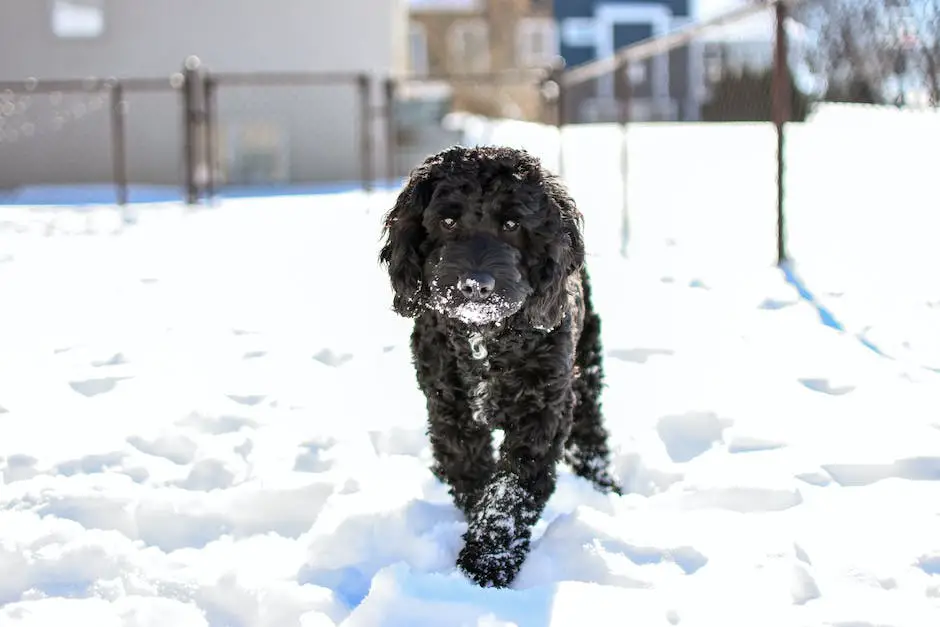
Using Toys and Enrichment to Combat Separation Anxiety
In addition to counter-conditioning, providing your Cockapoo with engaging toys and enrichment activities is a great way to alleviate separation anxiety. These mentally stimulating items and activities not only keep your pup entertained but also help them develop healthy coping mechanisms when left alone. By focusing on these tasks, your dog can gain a sense of control over their environment, which reduces the stress and anxiety associated with being separated from their owner. It’s crucial to select toys and activities that are interactive and engaging for your Cockapoo while ensuring they are safe and appropriate for their age, size, and chewing habits.Kong toys are an excellent addition to any dog’s toy collection, particularly for those prone to separation anxiety. These durable rubber toys come in various shapes and sizes, and the concept is simple – fill the toy with your Cockapoo’s favorite treats or kibble, and they will spend a considerable amount of time trying to get the food out. This focuses their attention on a rewarding and engaging task, rather than the anxiety of being alone. Moreover, having their favorite treats in the toy will create positive associations with alone time, which can help decrease their anxiety levels.Another enrichment strategy is to introduce puzzle toys and games that require your Cockapoo to think and problem-solve. These toys often involve hidden compartments for treats, with your pup needing to move or manipulate the toy to get to their reward. These mentally stimulating tasks are especially helpful for intelligent breeds like the Cockapoo, as they will engage their minds and help to tire them out, resulting in a calmer state of mind overall.Interactive feeders, like slow feed bowls or food-dispensing toys, can also help reduce separation anxiety. Feeding your Cockapoo before leaving them alone can create a positive association with your departure and keep them occupied for a time. An interactive feeder makes mealtime last longer, prolonging their focus on eating, and reducing the amount of time they spend worrying about your absence.Lastly, consider organizing play dates or enrolling your Cockapoo in a doggy daycare or dog-walking service if their separation anxiety becomes overwhelming. This not only allows your pup to socialize with other dogs, but also means they will have company when you are away, reducing the impact of separation. Engaging your Cockapoo in routine exercise and social activities is key to creating positive associations with your absence and fostering mental well-being.
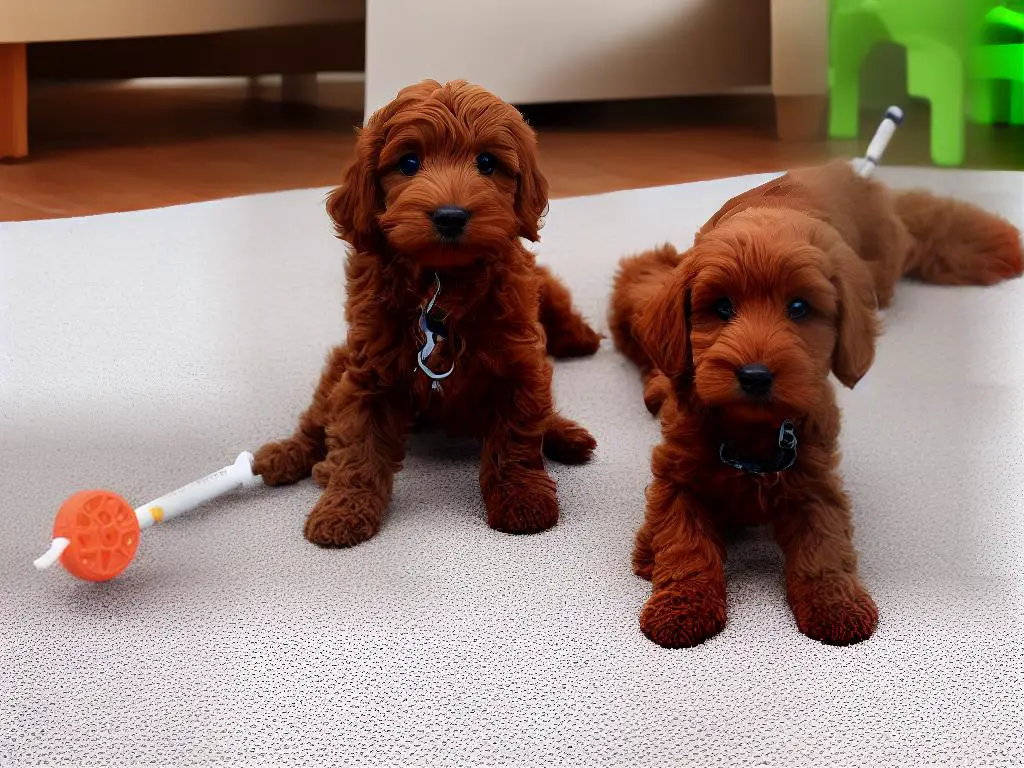
Medication and Alternative Therapies
Additionally, pharmaceutical options, such as anti-anxiety medications, can be explored when necessary to alleviate separation anxiety symptoms in Cockapoos. These medications can help minimize destructive behaviors, ease stress, and provide a better quality of life for both dogs and their owners. Some common medications prescribed by veterinarians for separation anxiety include Selective Serotonin Reuptake Inhibitors (SSRIs), such as Fluoxetine (Prozac), and Benzodiazepines, such as Diazepam (Valium). These medications work by altering the dog’s brain chemistry to create a feeling of calm and relaxation. It is essential to consult with your veterinarian before starting any medication, as the dosage and treatment plan will vary depending on your dog’s specific needs and medical history.
Apart from conventional medications, there has been an increasing interest in the use of alternative therapies, such as CBD oil, to treat separation anxiety in dogs. CBD oil is derived from the hemp plant and contains a compound called cannabidiol, which has been shown to have anti-anxiety and anti-inflammatory properties. Studies suggest that CBD oil may have a positive impact on reducing anxiety-related behaviors in dogs. This natural remedy is becoming more widely accepted as a safe and effective treatment for separation anxiety in Cockapoos. Owners can administer CBD oil directly to their dogs or add it to their food or treats, but it is essential to consult with a veterinarian before using it to ensure the correct dosage and to avoid potential interactions with other medications your dog may be taking.
In addition to CBD oil, there are many over-the-counter calming supplements available that may also help alleviate separation anxiety in Cockapoos. These supplements typically contain natural ingredients such as chamomile, valerian root, L-theanine, or passionflower, which are known for their calming effects on the nervous system. Calming supplements are often available in various forms, including chews, tablets, or liquids. It is crucial to follow the recommended dosage instructions and introduce these supplements gradually to monitor any possible side effects. It is always best to consult with your veterinarian before adding any supplements to your dog’s diet.
When considering medication and alternative therapies for Cockapoo separation anxiety, it’s essential to keep in mind that individual dogs may respond differently to various treatments. It is crucial to monitor your dog’s behavior closely and maintain open communication with your veterinarian to determine the best course of action. In many cases, a combination of medication, alternative therapies, and behavioral training can help manage separation anxiety in Cockapoos most effectively.
One of the most crucial aspects of addressing separation anxiety in Cockapoos is to be patient and persistent. Improvement in your dog’s behavior might take several weeks or even months of consistent treatment and training, so it’s essential to remain supportive and understanding throughout this process. By using a combination of medication, alternative therapies, and proper training, you’ll help your beloved Cockapoo lead a happier and healthier life.

Working with a Professional Trainer or Behaviorist
In situations where your Cockapoo’s separation anxiety issues are proving difficult to manage, it might be beneficial to consult a professional trainer or behaviorist. There are several signs that could indicate the severity of your dog’s anxiety, such as destructive behavior, excessive barking, or attempts to escape when left alone. If you’ve already tried multiple techniques from online resources or books without success, or if the anxiety seems to be worsening, seeking professional assistance could be the most effective course of action.
Trainers and behaviorists use different approaches when working with dogs, depending on their background and qualifications. A trainer typically focuses on obedience training and can teach your dog or puppy specific coping skills to manage their anxiety. Behaviorists, on the other hand, are experts in understanding the underlying psychological factors contributing to your dog’s anxiety. They work to address the root cause of the issue and may use various techniques such as desensitization, counter-conditioning, or medication to help your dog overcome their fears.When looking for a professional, make sure to find someone who is experienced in working with separation anxiety and Cockapoos specifically. You can ask for recommendations from fellow Cockapoo owners, your veterinarian, or local dog clubs and associations. Be sure to research each candidate’s qualifications and experience, check their reviews, and ask for references from past clients. It’s essential to find someone who will address your dog’s specific needs and work closely with you to create a tailored plan for your Cockapoos’ progress.During your sessions with a professional trainer or behaviorist, you can expect them to conduct a thorough assessment of your dog’s overall temperament, anxiety triggers, and current coping mechanisms. They will then create a comprehensive plan that suits your dog’s individual needs, factoring in its breed, age, and unique temperament. The sessions may include both interactions with the professional and supervised sessions with you to ensure a consistent and cohesive approach to addressing the anxiety. The duration and frequency of these sessions will depend on your dog’s needs and progress, as well as the professional’s recommendations.It’s essential to remember that working with a professional trainer or behaviorist is not an overnight solution. It will likely require patience, dedication, and long-term commitment from both you and the professional. Keep in mind that setbacks might occur, but it’s crucial to stay consistent and communicate with the professional for ongoing guidance and support. By working together with a professional, you can help your Cockapoo feel more secure and confident in your absence, ultimately reducing their separation anxiety and fostering a lifelong, happy relationship.
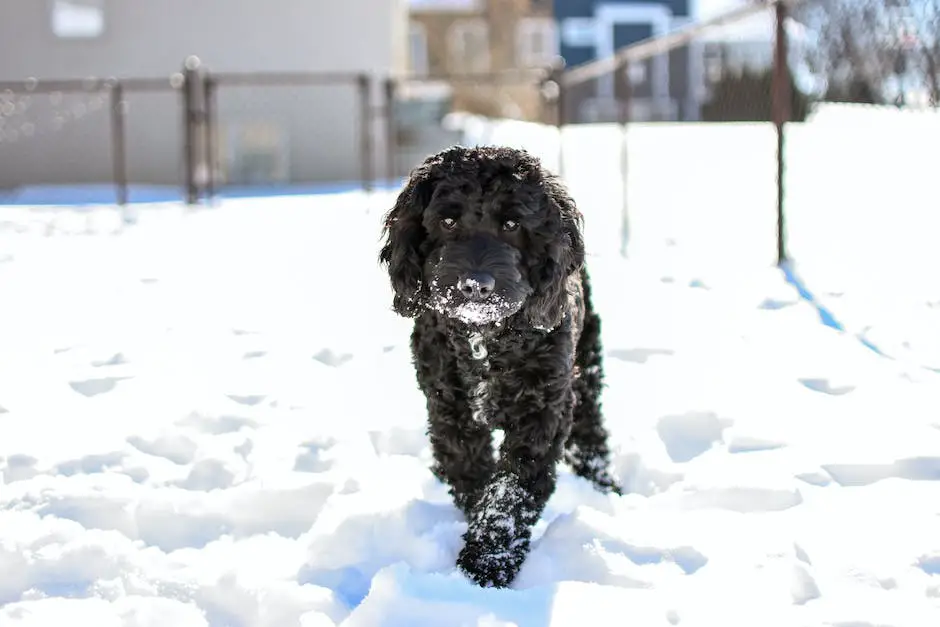
By understanding and addressing separation anxiety in Cockapoos, you can help your canine companion grow into a well-adjusted and content family member. Applying the right strategies and sometimes even seeking professional help is a testament to your commitment to your dog’s well-being. As you navigate the journey of managing separation anxiety, remember that patience, consistency, and a loving approach will set your Cockapoo up for success and deepen the connection and bond between you.
